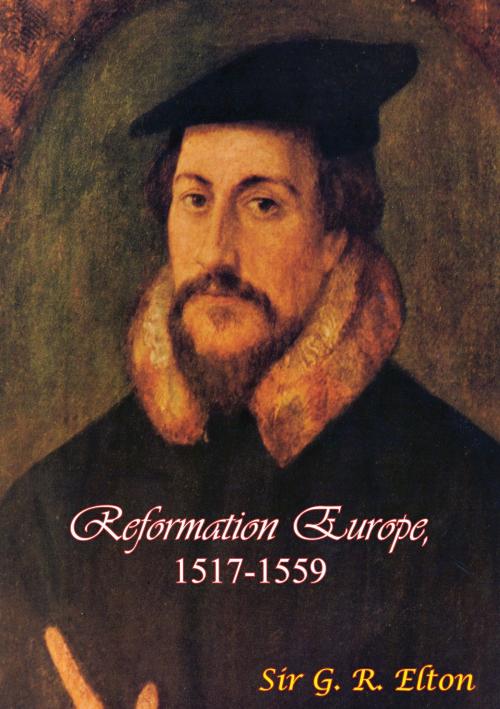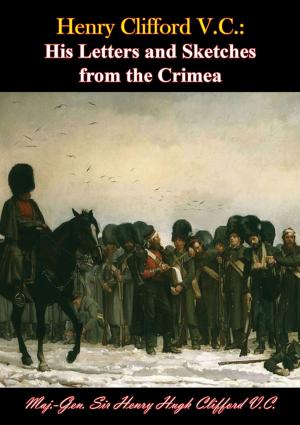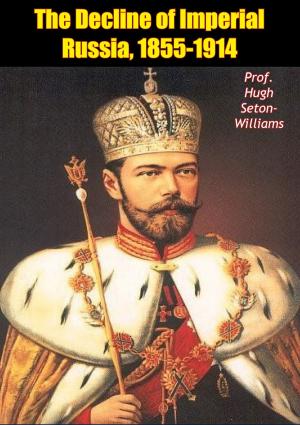| Author: | Sir G. R. Elton | ISBN: | 9781787200555 |
| Publisher: | Normanby Press | Publication: | August 9, 2016 |
| Imprint: | Normanby Press | Language: | English |
| Author: | Sir G. R. Elton |
| ISBN: | 9781787200555 |
| Publisher: | Normanby Press |
| Publication: | August 9, 2016 |
| Imprint: | Normanby Press |
| Language: | English |
A classic account of the Reformation, revealing the issues and preoccupations which seemed central to the age and portraying its leading figures with vigour and realism.
The book is an analysis of the religious, economic, cultural and political history of Europe during the period of the Reformation. Author G. R. Elton examines the history of the period through the interrelationships between different forces in Europe at the time, such as the Holy Roman Emperor Charles V, the Papacy, reformers such as Martin Luther, John Calvin, Martin Bucer and Zwingli, and explores the resultant Counter-Reformation and the beginnings of European colonisation of other parts of the world such as South America. Its central focus is upon the conflict between Luther and Charles V.
“A masterly survey by a fine historian. He has gone to great pains to understand and do justice to the theological side, and if political history is still his strength there is no doubt that this paperback in scholarship, perspective and information far outweighs in value and importance most of the hard-bound studies of the 16th century in the last fifty years.”—E. GORDON RUPP
“It is extremely pleasant to welcome a new History of Europe series in which the inaugural volume is of such high merit. Dr. Elton sets himself a difficult task; the result is a book written with the bold, subtle, assured pen of an accomplished scholar.”—JOEL HURSTFIELD
“Not since Ranke has any historian described the religious and political history of Central Europe during the Reformation with as much insight and authority.”—H. G. KOENIGSBERGER, History (London)
“Dr. Elton has put all students in his debt by providing an up-to-date and highly readable account of the ecclesiastical, political, and social history of Europe during the vital years 1517 to 1559...This book can be unreservedly commended.”—C. W. DUGMORE, The Journal of Ecclesiastical History
A classic account of the Reformation, revealing the issues and preoccupations which seemed central to the age and portraying its leading figures with vigour and realism.
The book is an analysis of the religious, economic, cultural and political history of Europe during the period of the Reformation. Author G. R. Elton examines the history of the period through the interrelationships between different forces in Europe at the time, such as the Holy Roman Emperor Charles V, the Papacy, reformers such as Martin Luther, John Calvin, Martin Bucer and Zwingli, and explores the resultant Counter-Reformation and the beginnings of European colonisation of other parts of the world such as South America. Its central focus is upon the conflict between Luther and Charles V.
“A masterly survey by a fine historian. He has gone to great pains to understand and do justice to the theological side, and if political history is still his strength there is no doubt that this paperback in scholarship, perspective and information far outweighs in value and importance most of the hard-bound studies of the 16th century in the last fifty years.”—E. GORDON RUPP
“It is extremely pleasant to welcome a new History of Europe series in which the inaugural volume is of such high merit. Dr. Elton sets himself a difficult task; the result is a book written with the bold, subtle, assured pen of an accomplished scholar.”—JOEL HURSTFIELD
“Not since Ranke has any historian described the religious and political history of Central Europe during the Reformation with as much insight and authority.”—H. G. KOENIGSBERGER, History (London)
“Dr. Elton has put all students in his debt by providing an up-to-date and highly readable account of the ecclesiastical, political, and social history of Europe during the vital years 1517 to 1559...This book can be unreservedly commended.”—C. W. DUGMORE, The Journal of Ecclesiastical History

![Cover of the book Vietnam from Cease-Fire to Capitulation [Illustrated Edition] by Sir G. R. Elton](https://www.kuoky.com/images/2016/august/300x300/9781787200814-ksgO_300x.jpg)
![Cover of the book The Eichmann Kommandos [Illustrated Edition] by Sir G. R. Elton](https://www.kuoky.com/images/2015/november/300x300/9781786253064-uxaT_300x.jpg)






![Cover of the book Gradual Failure: The Air War Over North Vietnam 1965-1966 [Illustrated Edition] by Sir G. R. Elton](https://www.kuoky.com/images/2015/november/300x300/9781786253989-JiYA_300x.jpg)
![Cover of the book With Havelock From Allahabad To Lucknow [Illustrated Edition] by Sir G. R. Elton](https://www.kuoky.com/images/2014/august/300x300/9781782894704-rmkg_300x.jpg)

![Cover of the book Artillery In Korea: Massing Fires And Reinventing The Wheel [Illustrated Edition] by Sir G. R. Elton](https://www.kuoky.com/images/2015/november/300x300/9781782899631-nwwN_300x.jpg)

![Cover of the book U.S. Marine Operations In Korea 1950-1953: Volume V - Operations In West Korea [Illustrated Edition] by Sir G. R. Elton](https://www.kuoky.com/images/2015/november/300x300/9781786254306-vY0V_300x.jpg)
